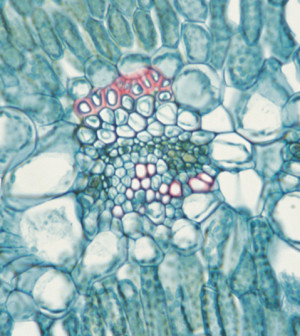- Could Your Grocery Store Meat Be Causing Recurring UTIs?
- Are You Making This Expensive Thermostat Error This Winter?
- Recognizing the Signs of Hypothyroidism
- 10 Strategies to Overcome Insomnia
- Could Artificial Sweeteners Be Aging the Brain Faster?
- Techniques for Soothing Your Nervous System
- Does the Water in Your House Smell Funny? Here’s Why
- Can a Daily Dose of Apple Cider Vinegar Actually Aid Weight Loss?
- 6 Health Beverages That Can Actually Spike Your Blood Sugar
- Treatment Options for Social Anxiety Disorder
Hopes Dashed for Rare Bone Cancer Treatment

Adding extra drugs to chemotherapy doesn’t benefit patients with a rare type of bone cancer, according to a new study.
Osteosarcoma is diagnosed in about 600 people in the United States each year, mostly teenagers. With current treatments, only 65 to 70 percent of patients live three years after diagnosis without relapse or other cancers.
Previous research suggested that more aggressive chemotherapy with extra drugs might help some patients, but this new study concluded that is not the case.
“This trial matters because, in the past, we were treating a lot of patients with these drugs without realizing that they weren’t helping,” said lead author Dr. Neyssa Marina. She is a professor of pediatrics at Stanford University School of Medicine in Palo Alto, Calif.
For the study, researchers assessed more than 600 osteosarcoma patients in 17 countries. Adding two drugs to standard chemotherapy not only failed to improve patients’ outcomes, it also increased toxic side effects, the study found.
“The important message from this data is that adding these two drugs does not improve the outcomes of patients who have poor responses to the initial chemotherapy. The drugs shouldn’t be added. With them, patients experience more toxicity and more second malignancies,” Marina explained in a university news release.
The findings are already changing care, Marina said.
Marina and her colleagues believe that advances in osteosarcoma treatment will require finding and targeting specific cancer-causing gene mutations in different patients.
The study was published Aug. 23 in The Lancet Oncology.
More information
The U.S. National Cancer Institute has more on bone cancer.
Source: HealthDay
Copyright © 2026 HealthDay. All rights reserved.










